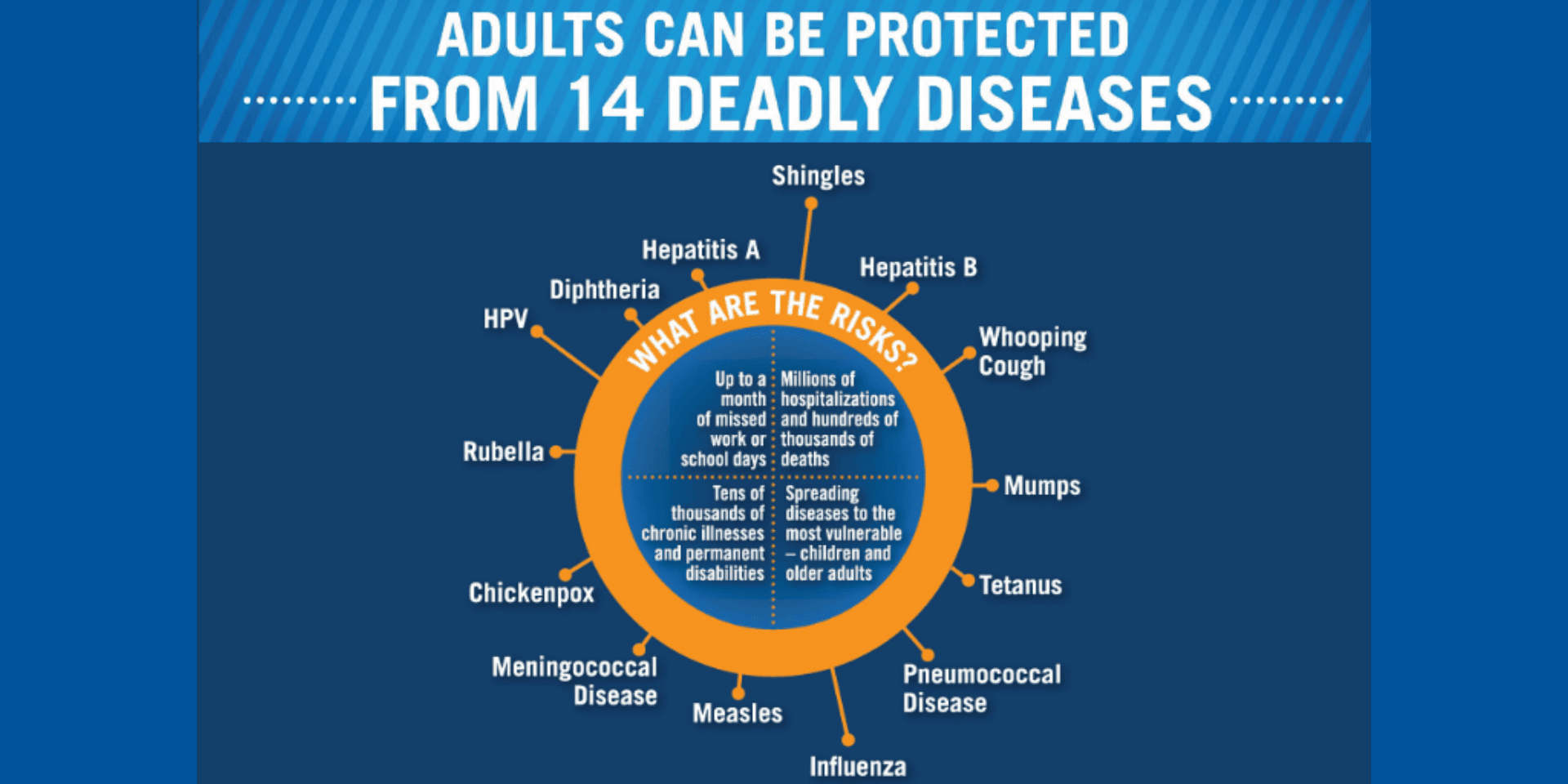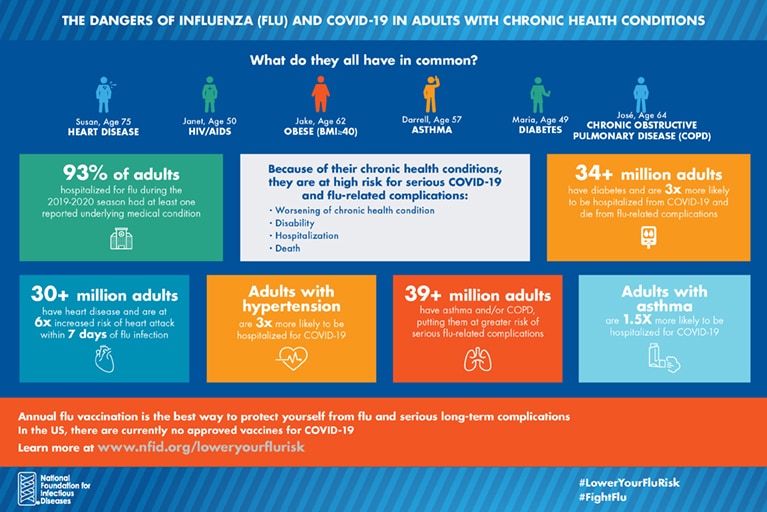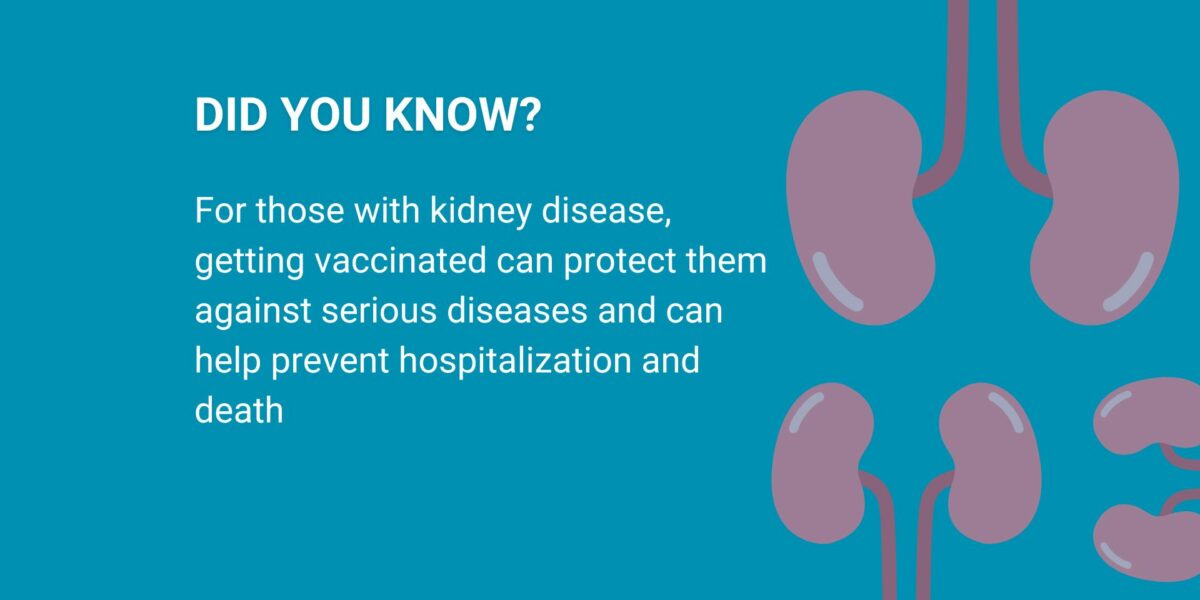
 As we recognize Veterans Day in the US and honor those who have served, the National Foundation for Infectious Diseases (NFID) and Vietnam Veterans of America (VVA)—a proud supporter of the Keep Up The Rates campaign—encourage veterans and their families to receive recommended vaccines that may have been delayed during the COVID-19 pandemic. Special thanks to Artie L. Shelton, MD, US Army Colonel (Retired), for this guest blog post about the importance of vaccinations for all veterans.
As we recognize Veterans Day in the US and honor those who have served, the National Foundation for Infectious Diseases (NFID) and Vietnam Veterans of America (VVA)—a proud supporter of the Keep Up The Rates campaign—encourage veterans and their families to receive recommended vaccines that may have been delayed during the COVID-19 pandemic. Special thanks to Artie L. Shelton, MD, US Army Colonel (Retired), for this guest blog post about the importance of vaccinations for all veterans.
Dr. Shelton served as the Medical Task Force Commander in Mogadishu, Somalia, and 14 years on staff and as a consultant with the Department of Veterans Affairs (VA). Dr. Shelton is currently serving as director of Vietnam Veterans of America (VVA) Health Council and is a nationally recognized expert in veterans’ healthcare and policy.
As a former Army physician and now a leader in veteran health advocacy, why do you think the Keep Up the Rates campaign is so important?
The healthcare community and our patients need the Keep Up the Rates campaign to emphasize and promote the message that vaccines save lives. Vaccines were created to protect the public against harmful and potentially deadly diseases. This is especially important during the COVID-19 pandemic. People need to be reminded that many diseases are preventable and, if ever there was a time to stay up to date with vaccinations, it is now. This is particularly critical during influenza (flu) season, as we know that flu and COVID-19 are a dangerous combination and hospitals are already challenged to meet the needs of COVID-19 patients.
Although we may have to wait for a COVID-19 vaccine to be approved, it makes no sense not to protect ourselves from the diseases we can already do something to prevent. I commend NFID for leading the national Keep Up The Rates campaign, reminding us to stay up to date with recommended vaccines we may have put off during the pandemic.
 How has the COVID-19 pandemic impacted vaccination rates among veterans?
How has the COVID-19 pandemic impacted vaccination rates among veterans?
There are more than 19 million veterans from all eras living in the US. More than 47 percent of those are age 65 years and older. Vaccination rates among all age groups have declined since the onset of the pandemic, with rates for adults age 65+ dropping 83 percent compared to 2019. Recent reports show that people are responding to the urgent need to get vaccinated against flu, but it’s important to know that we should not stop there. Ask your healthcare professional if ALL your vaccinations are up to date. This is true for all veterans and their families, and especially for anyone who is older or who has a chronic health condition, like heart disease, lung disease, or diabetes.
What are some of the risks veterans and their families face in not receiving recommended vaccines?
Vaccinations are an important part of protecting families and public health. Vaccines prevent the chances of getting a disease, can help lessen the severity if you do get sick, and are also essential in stopping the spread of dangerous and deadly diseases. Populations at risk, whether by age or chronic health condition, owe it to themselves, their families, and their communities to get vaccinated as recommended.
You have written a number of articles urging veterans of all ages to be sure that they are up to date on recommended vaccinations. What vaccines are generally recommended for Vietnam-era veterans?
As we get older, our immune systems tend to weaken over time, putting us at higher risk for certain diseases. The Centers for Disease Control and Prevention (CDC) recommends certain vaccines for adults age 65 years and over. I urge veterans, and indeed everyone, to talk to their healthcare professionals about vaccines. This is especially important for anyone with a chronic health condition like heart disease and diabetes. The majority of flu-related hospitalizations occur in older adults, with 90 percent of flu-related deaths occurring in this age group. You can help save lives by getting an annual flu vaccine!
In addition to the seasonal flu vaccine and Td or Tdap vaccine (tetanus, diphtheria, and pertussis), veterans should get vaccinated against shingles and pneumococcal disease.
How can veterans find out if they are up to date on their vaccinations?
Veterans and all patients should consult with their healthcare professional to review their vaccination history and current medical status. Resources about vaccines are available from your healthcare professional, as well as CDC and NFID.
Many people assume that all veterans get their care through the VA, but older veterans may also have Medicare, and many younger veterans have private insurance or Medicaid. Do veterans have options in terms of where they can get vaccinated? How can they be encouraged to take advantage of those options?
Yes, veterans have options about where they can receive healthcare services and vaccinations. Of the 19 million veterans in the US, slightly more than 9 million are enrolled in VA healthcare so a majority of veterans seek care outside the Department of Veterans Affairs and the Department of Defense. Regardless of how or where you receive your healthcare services, I urge you to ask about recommended vaccines.
Learn more about the Keep Up The Rates campaign and view shareable resources at www.nfid.org/KeepUpTheRates.
To join the conversation and get the latest news on infectious diseases, follow NFID on Twitter using the hashtag #KeepUpTheRates, like us on Facebook, follow us on Instagram, visit us on LinkedIn, and subscribe to receive future NFID Updates.
Related Posts

Vaccines and Heart Health: A Vital Connection
Heart disease can increase the risk of serious or fatal complications from respiratory diseases including COVID-19, flu, and RSV

Harnessing the Power of Local Data
NFID dashboard aims to empower stakeholders with hyperlocal data to increase US adult respiratory vaccine uptake

3 Things You Need to Know about Kidney Disease and Vaccines
It is important for people with kidney disease to understand how critical vaccination can be for their health and well-being
